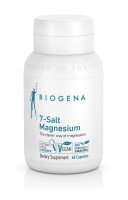People who exercise get more out of life. Beyond making us feel happier, an active lifestyle does wonders for the body and soul. To develop a real passion for a sport and stay on the ball over the long term, you need to know the sport that’s best for you. After all, your ideal sport also depends on your personality. But what type of athlete are you? And which micronutrients could support you in your sports sessions?
Exercise is in our nature
Humans are mobile creatures. As we evolved, our bodies adapted to our forebears’ active lifestyle and the ages they spent as hunter-gatherers. Our muscles, tendons and bones are perfectly attuned and structured to facilitate movement. We now know that people who look after their bodies can boost their health tremendously. What’s more, exercise can alleviate many complaints with next to no side effects, and even safeguard against certain ailments.
But which sport is right for me?
The good news for any couch potatoes out there is that it’s never too late to take up exercise. With this in mind, we should make use of the swell of energy many of us experience in spring and make a change to a more active life. However, to ensure the initial motivation doesn’t drop, it’s important to choose a type of sport that suits you. That’s the only way to really enjoy your exercise and make sure you stick to it.
1. The peaceful, balanced type
The balanced type draws strength from peaceful sports. Whether they do yoga to leave their cares behind or go for runs to breathe in nature’s beauty, they enjoy peaceful activities that let them switch off and de-stress. To this type of person, competitive situations involving loud group activities seem nightmarish and take all the enjoyment out of exercising. Their ideal sports include golf, cycling, horse-riding, long-distance running, swimming, Nordic walking, Pilates and hiking.
2. The communicative team player
For this type of person, sport isn’t just about exercise – the social aspect is also important. To them, sport represents a great opportunity to meet up with friends and get to know new people. They hate the thought of cycling solo through the countryside or sweating on the cross-trainer within their own four walls. They need other people to motivate them to exercise. The sports for these people would be dancing, ball sports, Zumba and aerobics classes. Other options include running, hiking and walking groups.
3. The ambitious, competitive type
Higher. Faster. Further. The classic competitor needs targets and loves a challenge. They find their enjoyment in certain individual sports as well as in team sports. In addition to fitness, many team sports also require tactical prowess and skill – and therefore often entail more significant training commitments. Individual sports often make it easier for beginners to adopt a more active lifestyle. Ideal sports for ambitious, competitive folks include cycling, running and triathlon. However, football, volleyball and basketball also give them the chance to chase their ambitious.
More sport = more nutrients
Doing exercise and working up a sweat requires a good supply of nutrients. People who do sport therefore need to pay more attention to their nutrient intake. A high-quality basic supply of nutrients is the perfect training aid: as well as a beneficial combination of amino acids, it also provides numerous vitamins and minerals. Certain micronutrients can support us depending on the sport and specific needs. The following table provides a brief overview of substances that support our bodies in exercise.**
| System supported | Examples of sports | Nutritional training aids** |
| Cartilage | Tennis, aerobics, walking, running | Cartilage is made up of substances including glucosamine, chondroitin sulfate, hyaluronic acid, collagen. Important nutrients: vitamin C, zinc, manganese1 |
| Tendons | Skiing, ski touring, tennis, running, football | Substances that make up connective tissues include mucopolysaccharides and hydrolyzed (type 1) collagen. Helpful nutrients: vitamin C, manganese, zinc1 |
| Immune system | All sports, but especially group sports such as volleyball, aerobics and Zumba | Supported by vitamin D, vitamin C, zinc, selenium2 |
| Muscles | Bodybuilding, strength training, CrossFit | Amino acids are the building blocks of proteins.3 Helpful nutrients: potassium, magnesium4, 5 |
| Stamina | Triathlon sports, long-distance running, walking | Magnesium, potassium, iron, calcium, omega 3 fatty acids, B vitamins4, 5, 6, 7 |
| Nerves & concentration | Ball sports, aerobics, dancing, all competitive sports | B vitamins, Ginkgo biloba, maca8 |
1 Vitamin C promotes the formation of collagen to support the normal functioning of blood vessels, bones and cartilage. Manganese plays a role in the normal formation of connective tissue. Zinc contributes to cell division.
2 Taking 200 mg of vitamin C in addition to the daily recommended dose helps the immune system to function properly during and after intensive physical activity. Vitamin D, zinc and selenium support the immune system and protect cells against oxidative stress.
3 Protein helps us to gain and maintain muscle mass.
4 Magnesium contributes to normal muscle function and plays a role in reducing tiredness and fatigue, maintaining the electrolyte balance and promoting the energy metabolism.
5 Potassium is involved in muscle function and helps to keep blood pressure stable.
6 B vitamins (B1, B2, B6, biotin), iron and calcium support the regular energy metabolism.
7 A daily intake of 250mg of omega 3 fatty acids EPA and DHA contributes to normal heart function.
8 Vitamins B1, B2, B6 and B12, niacin and biotin help to make sure our nervous system functions properly. Vitamins B1, B6 and B12, folic acid, niacin and biotin contribute to stable psychological function. Pantothenic acid plays a role in supporting normal mental performance. Maca supports physical and mental performance. Ginkgo biloba helps to preserve our cognitive functions and cognitive performance.
References available from the author.
**These statements have not been evaluated by the Food and Drug Administration. This product is not intended to diagnose, treat, cure or prevent any disease.


